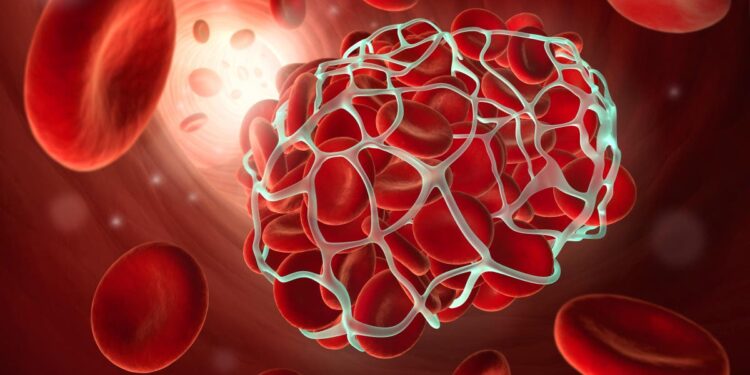A clot is a clump of cells and protein in one’s blood. It helps in slowing bleeding when one is injured. It usually dissolves as one heals.
However, if it forms when it’s not needed, it can clog up or completely block a blood vessel. An unexpected clot can lead to serious problems and even death. In an artery, it can give you a heart attack or a stroke. If it happens in a vein, you can feel pain and swelling.
In Uganda, a number of people including big figures have died because of blood clotting.
A 2021 report of a study conducted at Mulago hospital revealed that 6 in 10 patients with nursing fractures die due of blood clots. The study also revealed that the “incidence of blood clots range between 16 per cent and 36 per cent” among general surgery patients.
Prof Moses Galukande from International Hospital Kampala in one of his articles on Blood clots also revealed that in the past blood clotting was thought to be less common in Africa but lately a surge has been seen as clots are now more likely in people who have just had surgery, childbirth and pregnancy. Globally it is estimated that up to 2 million people annually develop this potentially life-threatening condition.
According to Dr James Beckerman a cardiologist from St. Vincent Medical Center in Portland and Professor Galukande from IHK, the more deadly forms of clots are those that form in the deep veins of the legs, dislodge and move to the lungs (the medical term is Pulmonary Embolism (PE). In the lung, these clots block arteries and prevent oxygen delivery to vital organs. Clots may plug a vessel in the brain (stroke), the intestines (causing part of the intestines to die off), and the kidneys and limbs.
One can get quickly a blood clotting if he/she breaks a bone or pull a muscle badly. Also odds of a clot are higher if one is; recovering from surgery or had to sit for many hours on a flight or in a wheelchair, overweight or obese. If one has diabetes or high cholesterol.
However, such emergencies can be avoided if the victim realizes a clot earlier.
According to Dr Beckerman, when a clot slows or stops the flow of blood, it can build up in the vessel and swell. If it happens in your lower leg or calf, it’s often a sign of Deep Vein Thrombosis (DVT). But one can have a clot in the arm or belly. Even after it goes away, one in three people still has swelling and sometimes pain and sores from damage to the blood vessel.
Some having PE in the lung will have palling skin, bluish, and clammy.
Sudden, intense chest pain could also be a sign that the clot has broken off and caused a PE. Or it could be a sign that a clot in an artery may lead to a heart attack. One might also feel pain in the arm, especially on the left. A clot often hurts where it’s located, like in the lower leg, stomach, or under your throat.
Trouble Breathing; this is a serious symptom. It could be a sign that one has a clot in the lungs or heart. At times the heart might also race, or one may feel sweaty or faint.
In one of his studies, Dr Beckerman explains that a clot can give different symptoms based on where it is. A PE clot in the lung can give a fast pulse, chest pain, bloody cough, and shortness of breath.
A clot in the heart at times gives similar signs to a clot in the lung. But if it’s a heart attack, one might feel nausea and lightheadedness along with chest pain.
A clot in the brain builds pressure because blood can’t flow normally. A severe blockage can sometimes lead to a stroke. Without oxygen from the blood, your brain cells start to die in minutes. A clot in the brain can cause headaches, confusion, seizures, speech problems, and weakness.
A clot in the belly often leads to blocked veins in the stomach or oesophagus, a tube that connects to your throat can rip and leak blood. That can hurt a lot. One may poop or vomit blood, and his/her stool might look black and smell unusually bad.
Dr Beckerman also explains that people can lower their odds of a clot. First, if one keeps a healthy weight, eats right, and exercises. Also, avoid sitting or staying still for a long, especially after a long trip or surgery.
Do you have a story in your community or an opinion to share with us: Email us at editorial@watchdoguganda.com












